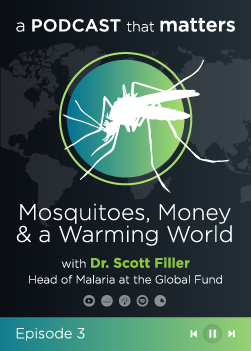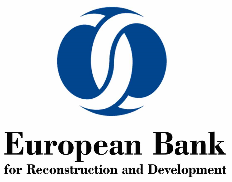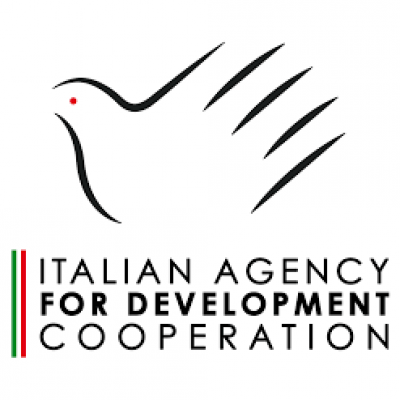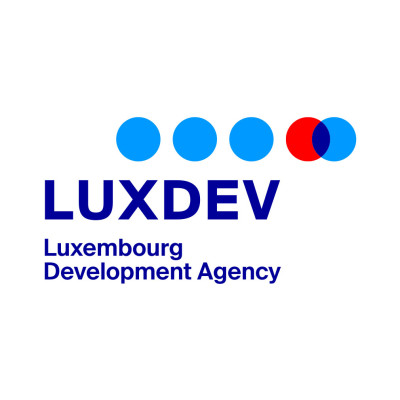Details
Description
Background
According to the latest UNESCO data (2012) only (95.5%)[1] of the Albanian population (25+) completed primary (ISCED 01) education, leading to roughly 14,000 people potentially illiterate.
The total of unemployed in Albania are 172,700 individuals according to the LFS elaborated by the National Institute of Statistics (NB: the total population is 2.8 million, and the total workforce 1.3 million). The main focus is to address the issue of insufficient basic functional skills of adults, and specifically the approximately 4,868 persons over the age of 29, (as for 2022) who are low educated registered jobseekers and who lack professional skills and other soft and technical skills required to obtain a job. Based on the LAMP mini survey, there are two categories of learners; adults, who have 0-6 years of previous education.
The “Supported Continuous Unemployed Learning” (SCUL) project, financed by the European Union Programme for Employment and Social Innovation (EaSI), implemented jointly by the National Agency for Employment and Skills and UNDP Albania, aims to contribute to the active participation of vulnerable low qualified jobseekers to the society and their transition to the labour market through the provision of quality, flexible, targeted trainings on basic skills. The action is expected to have an impact on the literacy ratio in Albania. The action is fully in line with the National Employment and Skills Strategy (NESS 2019-2022), the long-term programmatic document with which the government of Albania committed with its citizens in promoting sustainable growth through social and economic inclusion.
Currently in Albania very limited targeted support is provided to low skilled unemployed people. The whole intervention is conceived as a capacity development project at the institutional level. Most of the deliverables provided under the project will lead to the establishment of a structure to support this target group. The intervention follows an integrated approach, both in the analysis of target group, its needs (educational and socio-economic) and in the service delivery. The ratio is that employment services complement other social services; the development of specific procedures to support the target group will include references to other social institution in charge of complementary services. This approach is expected to create bridges between different key-actors in the provision of social service, with the long-term ambition of building an integrated case management system.
The ambition of this intervention is to establish a structure and enhance the capacities to address the specific needs of the target group, building on which, hopefully, trigger systemic upskilling mechanisms in the longer term, progressively reducing the size of the group and facilitate its transition towards the labour market. The intervention aims to achieve the following outputs:
Output 1: Vulnerable jobseekers are referred to tailored basic learning provision or other social services
Output 2: Low skilled job seekers benefitted from quality, flexible, targeted trainings on basic skills
Output 3: Training provision is constantly improved based on collected evidence.
The project has started its implementation in 2020. First work package created a project steering committee and framed a project management strategy. Its second work package (WP2) focused on conducting an in-depth analysis of the target group. Digging into demographic characteristics, social-economic factors, geographical provenience, the need for complementary health care or social services; the analysis helped on identifying specific sub-groups based on criteria other than age and educational attainment. The third work package (WP3) employed international and national expertise to adapt a literacy assessment tool and further asses the basic literacy skills of one sample of the target group (1000 persons). A feasibility study articulated the steps, and the possible pathways in implementing a skills assessment methodology and tool based on tested international successful models. For this, a consultation was carried, which guided the selection of a skills assessment methodology and tool with the purpose of addressing low-skilled adult learners’ existing competencies. The fourth work package (WP4) is developing capacities by providing training to the NES staff of the implementation of new procedures (applying the training of trainers' approach). The fifth work package (WP5) developed a set of tailored, flexible and quality learning opportunities to be offered to jobseekers not having completed primary education in Albania. A new technical curricula was developed in the framework of diversifying the employment programmes portfolio and improving the employability levels of the jobseekers, allowing the combination of different modules and provision of flexible solutions. The delivery of training will make use of structures already in place, such as VTCs, and, if needed, employment offices, community and social centres or local NGO’s. This intervention will as well the help through equipping teachers of basic skills training with the pedagogical tools necessary to facilitate learning of adults with low cognitive equipment. The offer of tailored curricula and capacitation will lay the ground for the implementation of training delivery (WP 6), as well as the final objective of the project, to design tailored roadmap for the whole target population and all the relevant stakeholders involved.
The last work package (WP7) will be devoted to analysis of results, with the aim to extract lessons learnt and provide specific recommendation to mainstream the tested approach at systematic level. The analytical component is conceived as cross-sectoral and built all along the whole project's implementation. One of the sub-actions of this WP is to create a roadmap. The final recommendations will be drawn at the end of the project identifying concrete actions to undertake in the following months and years to support upskilling pathways in Albania. The roadmap will be fed by all the important lessons learned from every step taken within the implementiation of this project. Study reports on the target group characteristics, policy papers, legal documents review, literacy therminology consultation, mapping and stakeholder consultation reports, capacity building guides to train instructors and mentors in life-long learning, results of the literacy survey, institutional protocols and leassons learned from final conference. It will have a pragmatic approach and it will be specifically devoted to planning actions after the end of the project, but as well as creating and sharing knowledge beyond the conclusion of this action. The expected impact is contributing to create knowledge and support evidence based policy making specifically in the field of second chance learning or life-long learning. This intervention will sustain the design and implementing of support measures that address in an equitable way obstacles to learning and training participation of this target group. To create this roadmap we are hiring a national expert.
The national expert will be working in close cooperation with the team of experts hired to complete the previous assignments, UNDP team and the NAES team.
[1] http://data.uis.unesco.org/index.aspx7queryid = 168#
Duties and Responsibilities
With the guidance of the Programme Specialist, under the supervision of the Project Manager, and in close cooperation with experts hired to complete preceding work, the expert is expected to carry out the tasks described below:
Draft and validate methodology to develop a roadmap which will serve as a base for a strategic life-long learning plan focus on unemployed adults (29+) with low levels of skills and education and who are not yet eligible for further formal training and professional formation. The methodology should be relevant to decision – makers at the governance level, service provider institutions and instructors. Also, it will inform a wider audience who is not necessary directly involved in the subject.
Map out and present similiar existing and successful tailored learning and upskilling pathways/ roadmaps in the region and EU countries. Utilize the data collected from the (WP2), (WP3), (WP4), (WP5) & (WP6) to create a systemic knowledge and instructions for upskilling pathways.
Consultations with relevant stakeholders: including beneficiaries and all the relevant institutional actors, private providers and third sector. Employ the viewpoints and ideas on how the delivery of services (link-up the training systems, learning pathways, knowledge, competences sufficial literacy levels and other associated social, health, economic, legal services) that will encourage life-long learning and upskilling pathways for the defined cohort of the population.
Propose a roadmap in cooperation with other local experts and local team of the project.
Motivate the discourse on upskilling pathways and life-long learning along the process.
Consult/validate the roadmap together with all the relevant stakeholders.
Propose a scale-up strategy to guarantee replication and ownership of the roadmap, as well as developing and improving the learning offer continuously.
Contribute to the international conference on adult learning and upskilling pathways, where the findings of the reports and roadmap will be presented.
The expected deliverables for this individual consultancy will be as follows:
Deliverable
Tasks
Timeline
1
Methodology and work plan drafted and validated
August 2022
3
Roadmap draft proposed and discussed with stakeholders
September 2022
4
Final Roadmap submitted
September 2022
Competencies
Core Competencies:
Demonstrating/safeguarding ethics and integrity;
Demonstrate corporate knowledge and sound judgement;
Self-development, initiative-taking;
Act as a team player and facilitate team work;
Facilitating and encouraging open communication in the team, communicating effectively;
Creating synergies through self-control;
Managing conflict;
Learning and sharing knowledge and encourage the learning of others;
Informed and transparent decision-making.
Functional Competencies:
Strong communication skills (written, spoken, composing, presentation) and ability to share expertise for capacity building.
Excellent skills in assessing, discussing and reporting adult education policies.
Excellent skills in providing evidence-based policy advice.
Prior solid experience in working with adult/lifelong learning in a national or interantional context, experience in developing instructions for teachers, students, education institution stakeholders.
Political and cultural sensitivity and commitment to UNDP’s development objectives in the country.
Required Skills and Experience
Academic Qualifications
Master’s degree in social science, education or other related field combined with relevant working experience.
Work Experience
Minimum 7 years of relevant professional experience, preferably in the field of social sciences, education, employment policies and lifelong learning.
Prior solid experience in working with policy development, policy analysis and consultations concerning adult education issues, assessing and discussing upskilling pathways for adults.
Knowledge of and hands on experience with the various education tools for adults.
Language
Full working knowledge of Albanian and English is essential.
Evaluation Procedure
UNDP applies a fair and transparent selection process that would take into account both the technical qualification of Individual Consultants as well as their financial proposals. The contract will be awarded to the candidate whose offer:
Is deemed technically responsive / compliant / acceptable (only technically responsive applications / candidates will be considered for the financial evaluation)
And has obtained the highest combined technical and financial scores.
Technical Criteria - 70% of total evaluation – max points: 70
Criteria A: Minimum 7 years of relevant professional experience, preferably in the field of education, skills, lifelong learning – max points: 20
Criteria B: Prior solid experience in working with policy analysis and consultations concerning skills, employment and basic education issues:15
Criteria C: Desk research, strategy document writing: 15
Criteria D: Technical Proposal outlining the proposed modality to develop the roadmap for the targeted population – max points: 20
Financial Criteria - 30% of total evaluation – max points: 30





